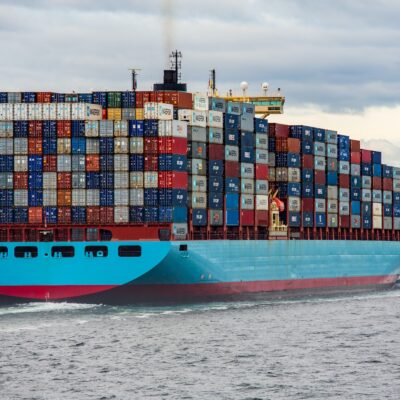

The Issue
Making things matters. A strong industrial base is vital to workers and their communities, the rate of technological and economic progress, and national security. Thanks to rapid offshoring, manufacturing output and now even productivity are declining. Only with public policy that promotes domestic investment will American leadership be restored.
What Voters Say
- 50% of GOP voters rank manufacturing as one of America’s top challenges. When asked to rank the most important challenges facing America, half of GOP voters chose “American manufacturing has been gutted by globalization and trade with China” as one of the top issues, far ahead of issues like taxes and regulation.
- 78% of GOP voters support industrial policy like the CHIPS and Science Act. By a wide margin, Republican voters support policies to subsidize semiconductor manufacturing, agreeing that “leadership in semiconductor technology is important and the United States is falling behind other countries like China and South Korea that do help companies to build factories.”
Why It Matters
Since the end of the Cold War, U.S. economic policy has abdicated responsibility for ensuring a strong industrial sector. An obsession with any economic growth and a love of cheap stuff led us to celebrate the offshoring of critical capacity. We relied on financial engineering to create the illusion of a healthy economy even as investment declined, technological know-how disappeared, and communities collapsed.
U.S. factories produce less than they did 15 years ago. It’s not the low-value goods that have gone overseas; the U.S. now runs a massive trade deficit in advanced technology products. The nation’s industrial crown jewels have failed: Intel no longer make the most advanced semiconductors; Boeing no longer makes the most commercial airplanes. General Electric turned itself into a failed financing company. American workers have become less productive, guaranteeing wage stagnation. Millions of manufacturing jobs have disappeared, depriving regions of family-supporting jobs. The COVID-19 pandemic exposed the lack of resilience in supply chains and our dependence on foreign producers. The military is sounding alarm bells that the U.S. industrial base cannot provide for the nation’s defense.
A free market does not guarantee domestic industrial strength, especially when domestic policy ignores it while foreign governments provide aggressive support to competitors. U.S. policymakers used to understand this—indeed, our world-leading economy of the 19th and 20th centuries relied upon a tradition of aggressive industrial policy to support investment and limit foreign competition. Leaving the private sector to invest in whatever will generate the highest profit is a recipe for national decline when the highest profit can be earned by offshoring jobs, building an app, or starting a hedge fund.
Returning the U.S. economy to a trajectory of strong economic growth requires recognizing the unique value of investment in supply chains and production processes. With industrial policy, policymakers can align the private and public interest, allowing capitalism to deliver on its promise of widely shared prosperity.
Political Leaders
What to Talk About
- The American Tradition. From the nation’s founding, the federal government played an aggressive role in protecting the domestic market and promoting productive investment. During the Cold War, federal investments and intervention drove the development of Silicon Valley and birth of the digital era. President Reagan blocked Japanese auto imports and created an industry consortium to reestablish leadership in semiconductors. The policy leaving the market to Wall Street is a recent invention, and a disastrous one.
- Big Business’s Failure. A capitalist free market relies upon businesses to make the investments that drive innovation and growth. U.S. businesses have been failing at this task. Their investment has not only declined—they have begun disgorging cash to shareholders so quickly that they erode their own capital base. Buybacks now exceed $1 trillion per year, suggesting firms have lost the ability or the incentive to deploy capital effectively. If the private sector cannot invest effectively, policymakers must play a role in channeling capital to productive uses.
- National Security. From advanced semiconductors to rare-earth minerals to pharmaceutical ingredients, the U.S. has lost the ability to produce many of the inputs necessary to project military power or respond to crises. The private sector does not consider U.S. defense or resilience when making its decisions. Industrial policy is necessary to advance national priorities.
Policy Proposals
- Local Content Requirements. One of the best ways to promote investment in domestic capacity is simply to mandate that certain products, or the share of the value in certain products, be manufactured domestically. This approach creates guaranteed demand and thus a strong incentive for reshoring manufacturing but leaves to the market the tasks of figuring out the who, how, and where of investment. President Reagan took this approach in 1981 when he negotiated a quota on the import of Japanese-produced vehicles. The Japanese automakers responded by making massive investments in the American South, spawning an industry that employs hundreds of thousands of people and is fully competitive in the free market, long after the quotas ended.
- Pre-Competitive Partnerships. Firms often hesitate to make the large, risky investments in research and development that can drive an industry forward. Government can play an invaluable role in bringing competitors together to collaborate on such projects and subsidizing the work done. New technologies are then available to all participants to use as they develop their own products and processes to compete with each other. Partnerships have been vital to progress in industries from jet engines to semiconductors.
- Development Bank. The CHIPS and Science Act illustrates the potential of federal funding targeted at high-value industrial projects to stimulate needed investment. But not every need can be addressed with a separate multi-year legislative and rulemaking process. A national development bank that raises private funds backstopped by public equity and can invest across a range of priorities would be far more efficient and effective.
Media
What to Ask
- Foreign policymakers use industrial policy to make their countries more attractive than the U.S. for investing in manufacturing. How should U.S. policymakers respond?
- How should policymakers ensure that the private sector focuses on making things vital to national security?
- Do you support the CHIPS and Science Act? If not, how (if at all) would you restore U.S. leadership in advanced semiconductor manufacturing?
Assignment Desk
- What happened to America’s industrial crown jewels—companies like Intel, Boeing, GE, and IBM—that once led the world in industrial innovation?
- Why is manufacturing productivity falling? Do factories really need more labor than they used to, just to produce the same output?
- If free trade worked, foreign companies would be “offshoring” various types of production to the United States. Does this ever happen?
More from Issues 2024
Issues 2024: Middle-Class Security
Stagnating wages have prevented workers from keeping up with the costs of attaining middle-class security in America.
Issues 2024: Worker Power
For 50 years, businesses have been finding ways to succeed while offering fewer secure jobs to American workers, leading to surging growth and profits while wages stagnated.
Issues 2024: Wall Street
For the American economy to boom again, financial markets will have to return to their proper role promoting productive investment.
Issues 2024: Globalization
Revitalizing the national economy must begin with restoring the incentive to invest and build in America.
Issues 2024: Family
The cost of achieving middle-class security has risen much faster than the typical wage, and now the nation’s fertility rate is plummeting.














